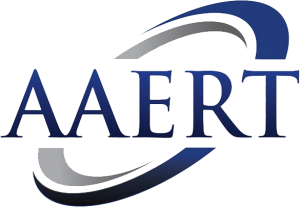Digital Court Reporter and Legal Transcription
Overview
Objective
What You’ll Learn…
Upon completion of this course you will learn:
- Develop the skills you need to become a successful digital reporter and legal transcriber who can work in the field and at home
- Professionalism, ethics, and confidentiality
- Fundamentals of our legal system including Legal, medical, and industry terminology
- Legal, medical, and industry terminology
- Digital reporting hardware and software including practice using digital recording software
- Transcript formatting, focusing on federal court systems
- Be in a position to sit for and pass the AAERT’s (American Association of Electronic Reporters and Transcribers) Certified Electronic and Transcriber exams, further broadening your options for employment.
Outline
I. Digital Court Reporter
A. The Legal System
B. Terminology
C. Hardware
D. Your Software and Annotations
E. On the Job and On the Record
F. Court Work and Large Proceedings
G. Professionalism in the Legal System
H. Course Wrap up
II. Legal Transcription
A. Transcriptionist Software Setup
B. English Language
C. Terminology
D. Grammar and Punctuation
E. Building the Transcript
F. Transcription Assignments & Working Environment
G. Transcription Assignments & Course Wrap Up
Prerequisites and Requirements
High School Diploma or equivalent and eligible for notary public commissions in your state.
Hardware Requirements:
This course must be taken on a PC device. A Mac OS is not compatible.
Software Requirements:
• PC: Windows 7 or later operating systems.
• Browser: The latest version of Google Chrome or Mozilla Firefox are preferred. Microsoft Edge and Safari are also compatible.
• Adobe Acrobat Reader.
• ExpressScribe software. You will be provided with download instructions upon enrollment.
• Software must be installed and fully operational before the course begins, except for the ExpressScribe software.
• Other: Email capabilities and access to a personal email account.
Instructor(s)
Merritt Gilbert is a legal professional with over 10 years of industry experience. She is a Certified Electronic Reporter and holds a Certificate of Voice Writing. She graduated with a Bachelor of Science from Florida State University.
Natalie Hartsfield is a court reporter with more than 10 years of experience in the legal field. She has taught court reporting since 2007. Natalie holds an Occupational Associate Degree in Court Reporting from Stenotype Institute.
FAQs
- What is the difference between court reporting and legal transcription?
Generally, court reporters provide a verbatim record of words spoken by the parties in a live legal proceeding such as a hearing, trial or deposition. Transcribers create hard copies of dictation given to them, usually by attorneys, either by live transcription or working from audio files. - How long does it take to complete a program?
When you register, you’ll receive six (6) months to complete this program. - Is court reporting a good long-term career?
The BLS notes that the growth of electronic technology in legal settings is likely to shift the nature of court reporting and transcription in the future. However, the Bureau notes that any increase in the use of technology is likely to be matched by an increase in demand for professionals who can deploy, manage and monitor the quality of its output. - Where do Digital Court Reporters and Legal Transcribers work?
Most court reporters work in courtrooms, offices or legislative chambers and meeting rooms. Legal transcribers often work in attorney’s offices and meeting facilities. Many also work remotely, offering their services on a contract basis from home or from an independent office. - Can I get financial assistance?
ed2go courses are non-credit courses, so they do not qualify for federal aid. In some states, vocational rehab or workforce development boards will pay for qualified students to take our courses. Additionally, some students may qualify for financial assistance when they enroll, if they meet certain requirements. - What happens when I complete the program?
Upon successful completion of the program, you will be awarded a certificate of completion from the ECU Office of Continuing Professional Education. - When can I start the program?
Our programs are all open enrollment. You can register and start the program as soon as you are ready. Please note: Once the program curriculum is accessed online or through submission of a material shipment confirmation, refunds cannot be issued.

